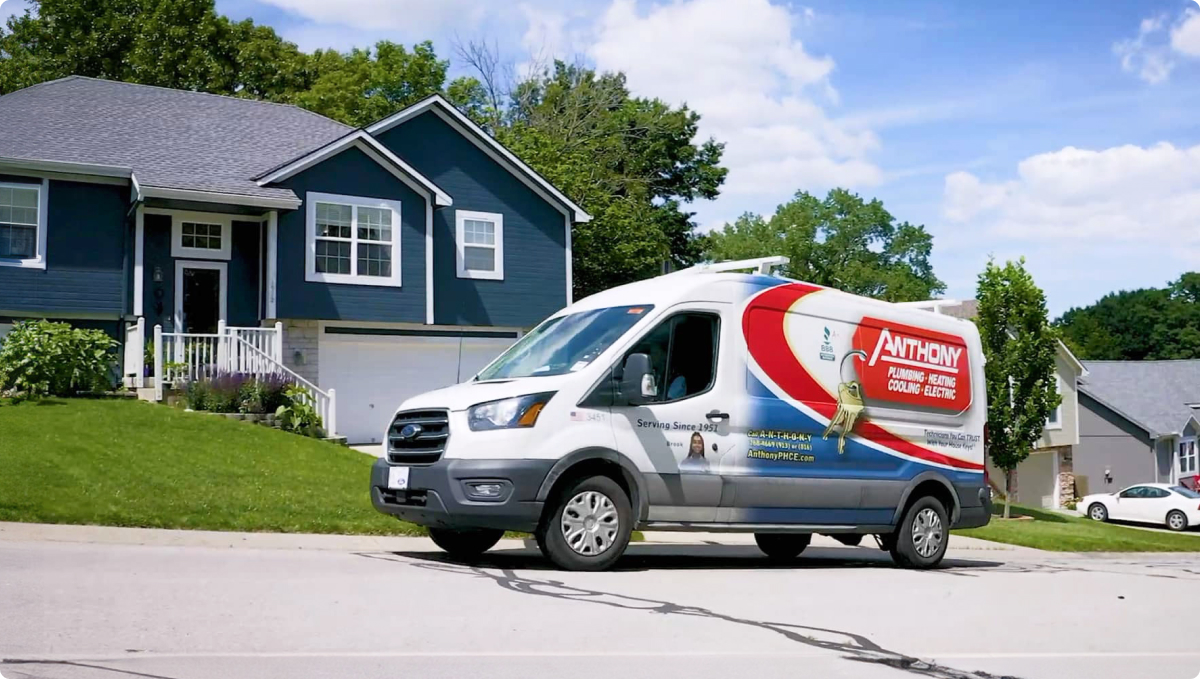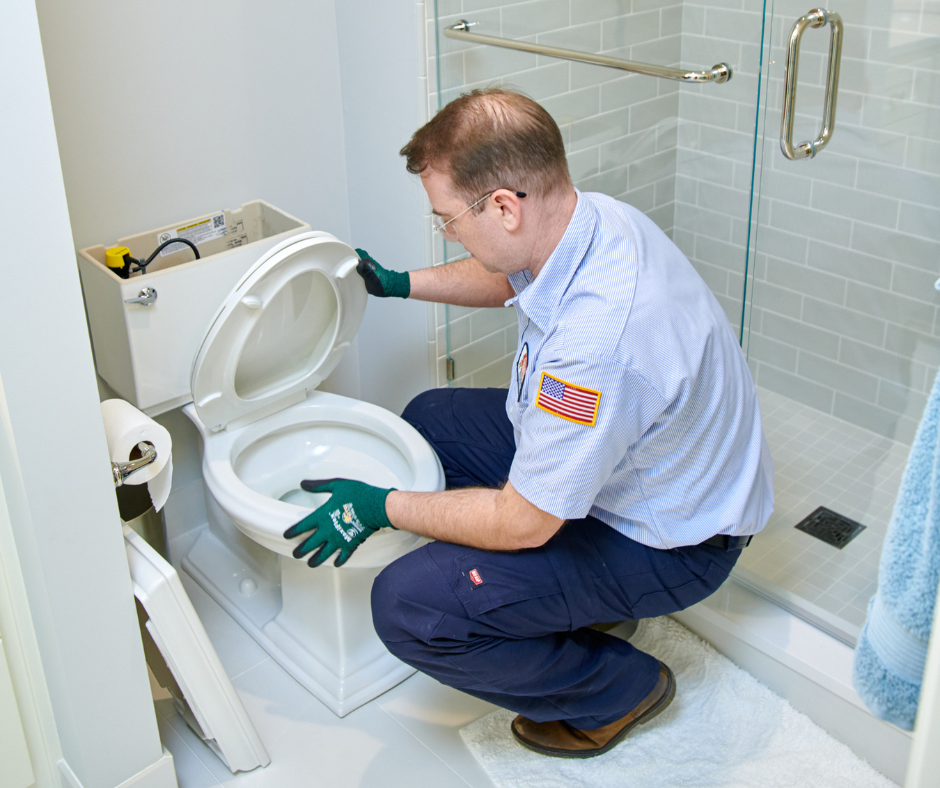BLOG
5 Common Plumbing Problems and How to Diagnose Them

As a homeowner in Kansas or Missouri, plumbing issues can arise unexpectedly, disrupting your daily routine and potentially causing costly damage. While some problems are easy to spot, others may go unnoticed until they become serious. Understanding these common plumbing issues and how to diagnose them can save you time, stress, and money.
Identifying Common Plumbing Issues in Your Home
Plumbing problems can start small but quickly escalate into expensive repairs if ignored. Identifying issues early is the best way to make sure your home remains safe, functional, and free from unexpected water damage. Below, we’ll expand on five common plumbing problems, including tips for identifying their root causes and understanding why they’re important to address.
1. Dripping Faucets
It’s easy to overlook a dripping faucet, but the constant dripping can add up—both in water usage and potential damage.
What to Look For:
- Persistent dripping that doesn’t stop, no matter how tightly you turn the faucet handle.
- Mineral buildup or visible corrosion around the spout or handles.
- Changes in water flow or pressure when the faucet is in use.
Potential Causes:
- A worn-out washer or O-ring that needs replacing.
- Corrosion in the valve seat, where the faucet connects to the water supply.
- Installation errors that compromise the faucet’s performance.
Why It’s Important:
Dripping faucets aren’t just a nuisance—they can waste hundreds of gallons of water per year, driving up utility costs. Also, the excess moisture can lead to mold or mildew in your kitchen or bathroom, creating unhealthy conditions.
Pro Tip:
Check all faucets in your home regularly for early signs of wear, especially in high-use areas like the kitchen and bathrooms.
2. Low Water Pressure
Low water pressure isn’t just an inconvenience – it can indicate serious plumbing problems lurking behind the walls.
What to Look For:
- Weak or inconsistent water flow from your faucets or showerheads.
- A sudden drop in water pressure, especially after a repair or maintenance service.
- Noticeable differences in pressure between hot and cold water.
Potential Causes:
- Mineral deposits in your plumbing lines, particularly if your home has hard water.
- A partially closed or malfunctioning shutoff valve that restricts flow.
- Hidden leaks in your pipes or fixtures.
When to Call a Professional:
If cleaning aerators or showerheads doesn’t resolve the issue, it could signal a more significant problem like pipe corrosion or a break in your main water line. Professional diagnostics are necessary to pinpoint the issue and avoid further damage.
Pro Tip:
Invest in a water softener if you live in an area with hard water to minimize mineral buildup over time.
3. Running Toilets
A running toilet might not seem urgent, but it can waste gallons of water daily and drive up your utility bills.
What to Look For:
- The sound of water running continuously, even when the toilet isn’t in use.
- A toilet that refills its tank repeatedly without being flushed.
- Higher-than-normal water bills without an increase in usage.
Potential Causes:
- A worn or damaged flapper valve, which regulates water flow between the tank and the bowl.
- A misaligned or disconnected fill tube.
- Improperly adjusted float height, causing the tank to overfill.
Why It’s Important:
Ignoring a running toilet can waste up to 200 gallons of water per day, translating into unnecessary costs. It also often signals a problem with internal components, which may eventually lead to complete toilet failure.
Pro Tip:
Check your toilet’s internal components regularly for wear and tear, especially in older fixtures. Replacing a flapper valve is a simple and affordable fix for many running toilet issues.
4. Clogged Drains
Clogged drains are among the most common—and frustrating—plumbing problems. They can range from minor inconveniences to major blockages that disrupt your household.
What to Look For:
- Water pooling in sinks, tubs, or showers instead of draining quickly.
- Persistent foul odors emanating from the drain.
- Gurgling or bubbling noises when water flows down the drain.
Potential Causes:
- Hair, grease, food particles, or soap scum blocking the pipes.
- A buildup of non-degradable items like wipes or paper towels flushed down toilets.
- Tree roots infiltrating outdoor pipes or sewer lines.
How to Address It:
While plungers and drain snakes can clear minor clogs, persistent blockages often require professional attention to prevent damage to your plumbing system.
Pro Tip:
Install drain covers in sinks and showers to catch hair and debris, and avoid pouring grease or oil down the kitchen sink to reduce the risk of clogs.
5. Leaky Pipes
Leaky pipes are a homeowner’s nightmare, often causing extensive water damage before they’re even noticed.
What to Look For:
- Visible water stains or damp spots on ceilings, walls, or floors.
- Musty odors, signaling potential mold or mildew growth.
- A sudden spike in your water bill with no apparent cause.
Potential Causes:
- Aging pipes that have corroded or cracked over time.
- Improper pipe installation or joints that have come loose.
- Excessively high water pressure putting stress on your plumbing system.
Why It’s Important:
A single leak can cause severe structural damage to your home, including weakened flooring and mold infestations. Leaks also waste water and can go unnoticed for weeks or months, increasing the damage.
Pro Tip:
Schedule regular plumbing inspections, especially if your home has older pipes, to catch potential leaks before they escalate.
When to Call a Professional for Plumbing Issues
While some plumbing problems can be managed with DIY efforts, many require professional expertise to diagnose and resolve effectively.
Signs You Need Professional Help:
- Persistent issues despite troubleshooting.
- Visible signs of water damage.
- Problems involving hidden pipes or your main water line.
At Anthony, we specialize in providing expert plumbing solutions for Kansas and Missouri homeowners. Whether you’re dealing with a stubborn clog, low water pressure, or a mysterious leak, our team is here to help.
Contact Us Today:
If you’re experiencing plumbing problems, don’t wait for them to escalate. Call Anthony at (913) 298-0444, or visit our Plumbing Services and Emergency Plumbing pages to learn more.



